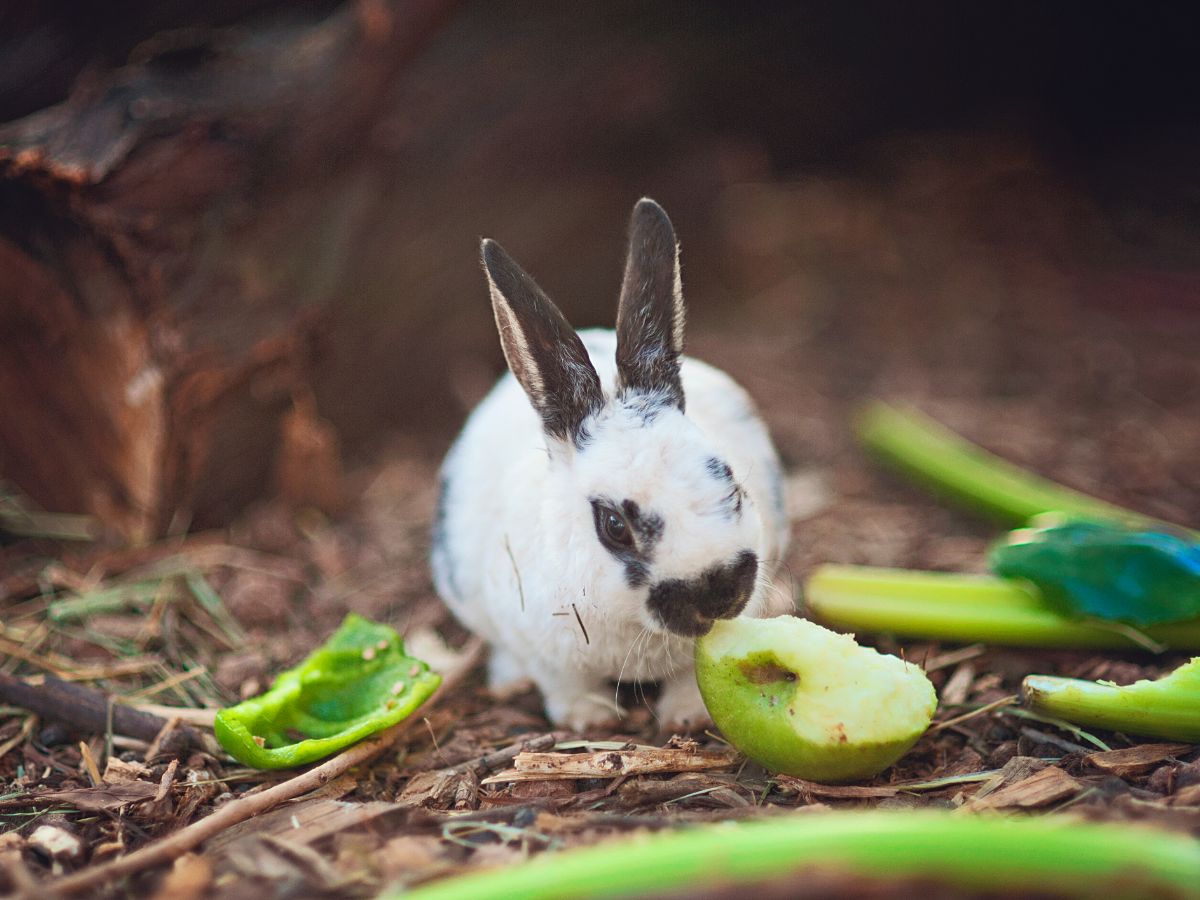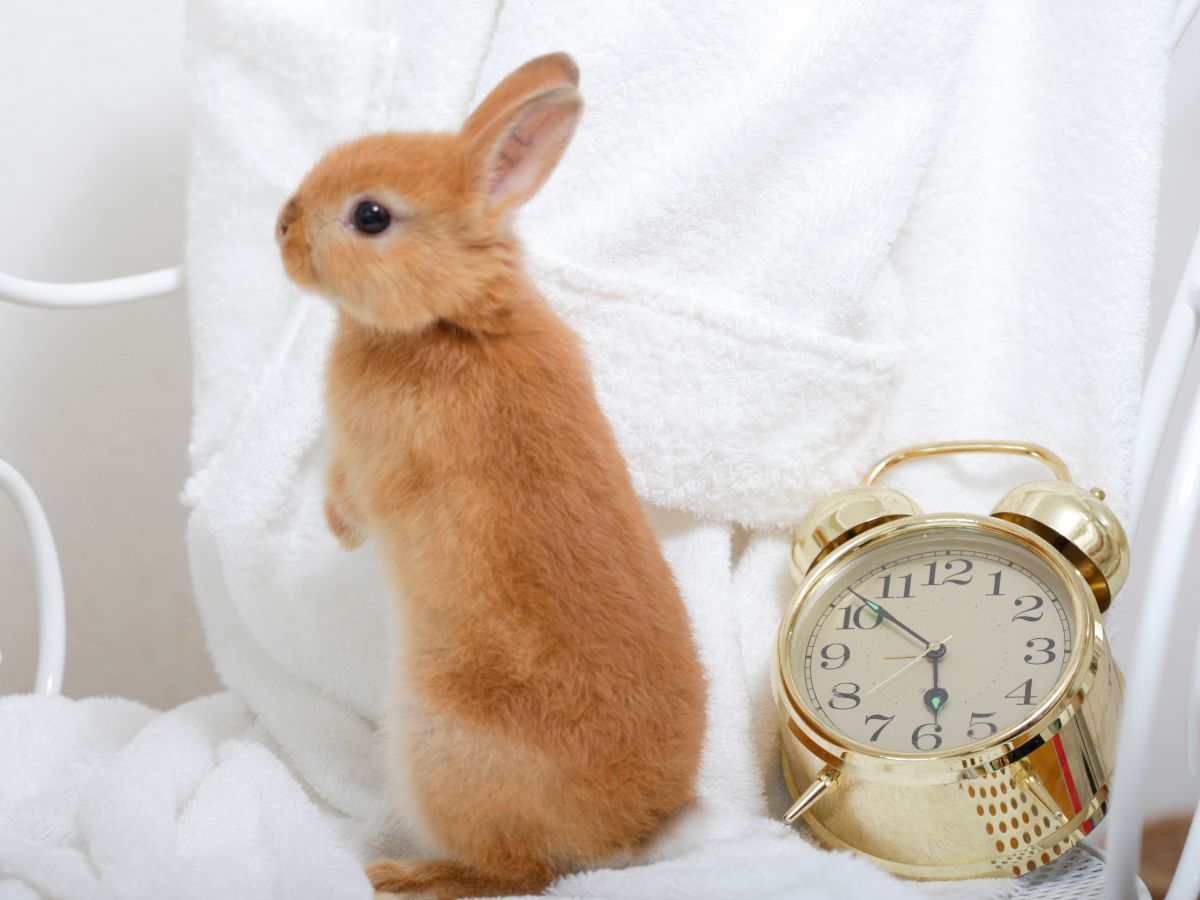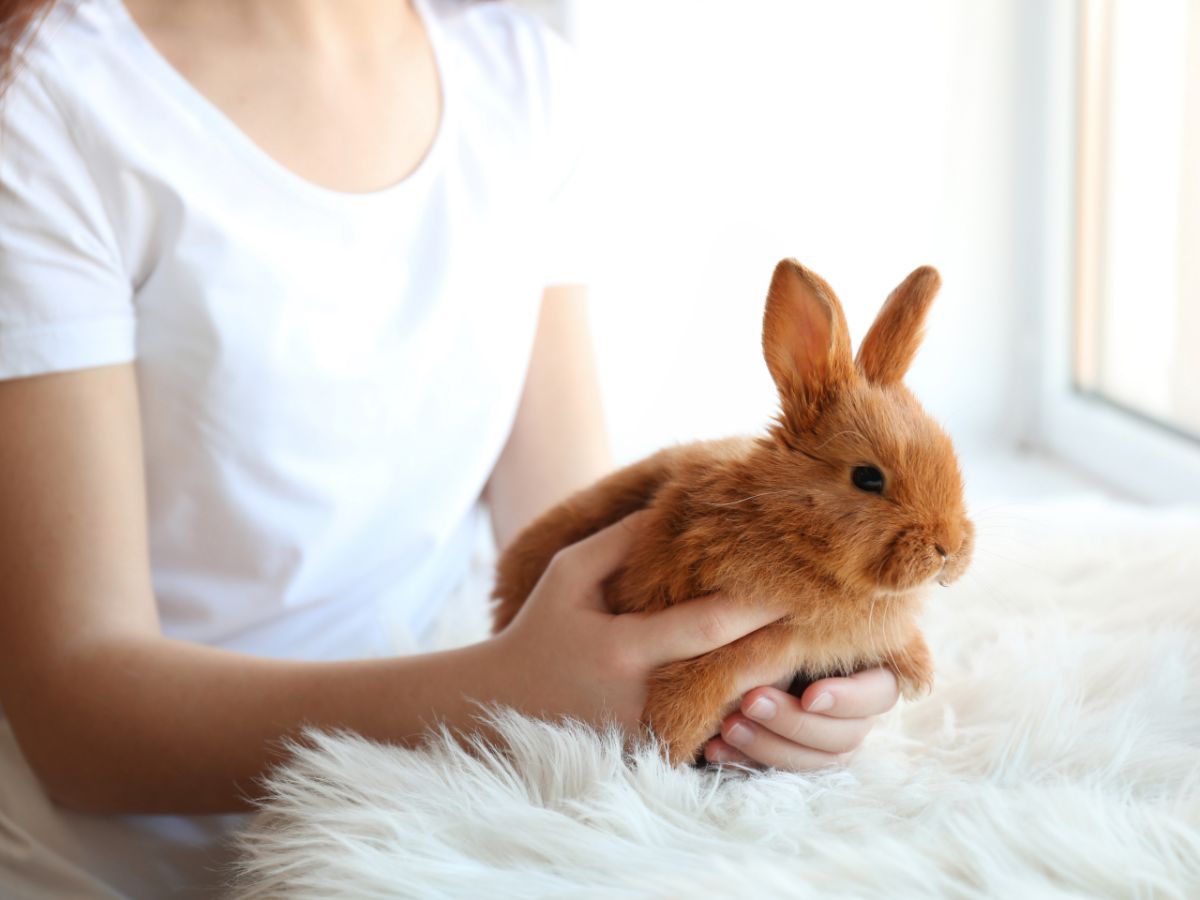All good pet owners want only the best for their pets. Whether you are a new bunny owner or simply want to improve your rabbit’s diet, you may have wondered what the best foods are to feed your rabbit.
Hay should make up the bulk of your rabbit’s diet, followed by leafy greens and good-quality pellets. Treats such as fruits keep rabbits happy but should be limited due to their high sugar and starch content. Avoid “muesli-style” rabbit foods at pet stores as they are highly processed.
So, if you’d like to know the best foods to feed your rabbit, you will find this article helpful. This article will discuss the best foods, how much your rabbit needs, and foods you should avoid feeding your rabbit.
Contents
What Are The Best Foods To Feed Your Rabbit?
Rabbits have incredibly sensitive digestive tracts, so it is important to be careful with their feeding routine. Luckily, if you stick to the recommended foods’ guidelines and steer clear of rabbit “junk food,” your rabbit should be happy and healthy!
Rabbits Need Unlimited Hay, Grass, And Water
Rabbits can eat a lot! Along with playtime and naps, eating is a firm favorite amongst bunnies. Hay is the essential food for your rabbit, and although it may seem bland and boring to us, they thoroughly enjoy it!
Rabbits are lagomorphs, so their teeth never stop growing. Hay has a tough texture and is wonderful for healthy teeth. It is also rich in nutrients that promote a healthy gut microbe. A healthy digestive system is extremely important as rabbits are prone to GI stasis.
Always make sure that your rabbits have lots of hay and water available at all times. Many types of hays are suitable for rabbits. The most popular hays include:
- Timothy hay
- Alfalfa hay
- Oat hay
- Meadow hay
- Orchard hay
- Teff grass
All the hays mentioned above are great for your bunny, and the nutritional values are similar (except alfalfa hay), so you can give your rabbit whichever ones they prefer or give them a mix.
Alfalfa hay is higher in proteins and calcium than other hay, so avoid feeding alfalfa to adult rabbits as it can make them overweight. Alfalfa is ideal for baby and young rabbits that are still growing or underweight rabbits.
Daily Fresh Greens For Rabbits
While hay should be the biggest part of your bunny’s diet, about 85%, a daily portion of fresh greens will keep your bunnies healthy and provide them with extra fiber. 10% of your rabbit’s diets should consist of low oxalate fresh greens.
The healthiest greens to feed your rabbit are dark, leafy greens such as:
- Coriander
- Bok choy
- Carrot tops
- Kale
- Rocket
- Romaine lettuce
- Mint
- Basil
- Dill
Note: iceberg lettuce should not be given to rabbits as it contains a chemical that is harmful to them, called Lactucarium.
Rabbits are sensitive to oxalic acid when digested in large amounts. Therefore, greens that have a higher oxalic level should be limited. In small quantities, oxalic acid is pretty harmless, so there is no need to exclude high oxalate foods from their diet.
Greens with high oxalic acid levels include:
- Spinach
- Mustard greens
- Parsley
It is good to add a variety of greens to your rabbit’s diet to keep them interested and add a range of nutrients. When adding new greens to their diet, introduce them slowly to give their little bodies time to adjust to the new foods and avoid any gastrointestinal issues.
Nuggets Or Pellets Provide Your Rabbit With Extra Nutrients
High-quality nuggets provide your rabbit with balanced nutrients but can cause weight gain if overconsumed. Always choose plain pellets containing hay, grass, and herbs with limited sugars. Pellets should be the remaining 5% of your rabbit’s daily food intake.
The amount of pellets you feed them will depend on the brand, the different flavors, and your rabbit’s weight. Medium-sized rabbits usually eat between 45-60 grams of pellets per day. Pellets can be fed daily or divided into two or three servings. We recommend the latter to keep your buns happy.
The top recommended brands for rabbit pellets are:
- Sherwood Pet Health Timothy Pellets For Adult Rabbits*
- Sherwood Pet Health Baby Rabbit Food*
- Kaytee Timothy Complete Rabbit Food*
- Oxbow Essentials Rabbit Food*
- Burgess Excel Adult Rabbit Food*

Keep Your Rabbit Happy With Snacks And Treats
Can you imagine life without chocolates? It would be pretty boring, right? Just as we enjoy occasional treats, so does your furry friend! And, just like us, too many treats can cause weight gain and many other health problems.
When fed in moderation, treats can be a wonderful addition to your rabbit’s diet. It encourages foraging when placed in foraging mats or toys, and it keeps things exciting! Treats are also handy apology gifts for those times you have unintentionally “wronged” your bun, like trimming their nails.
Snacks and treats should be as natural as possible. A selection of vegetables and fruits are best used as snacks. Fruits are high in carbohydrates and sugars, so while you shouldn’t feed them daily, they make great snacks! There are many rabbit-safe fruits, but most rabbits enjoy berries, apples, and bananas. They go crazy for bananas!
To be safe, always remove the seeds before feeding your rabbit fruit, as some seeds are toxic to them, like apple seeds. While some seeds are ok, it is easier to remove all seeds than to remember which ones are safe and which ones aren’t.
Foods You Should Avoid Feeding Your Rabbit
Most pet stores sell a muesli-style mixed variety of pellets, corn, sunflower seeds, and colorful, processed nuggets marketed as rabbit food. Although muesli-style rabbit food isn’t toxic, they are not healthy and should be avoided. Likewise, hamster food does not contain the same nutrients as rabbit food and is not ideal for them.
You should not feed human foods like chocolate, peanut butter, or yogurt-coated nuts to rabbits (or any other animal).
The following vegetables are toxic to rabbits:
- Swiss chard (also called silver beet)
- Cauliflower
- Rhubarb
Conclusion
Feeding your rabbit lots of hay, followed by fresh greens, and staying away from processed “pet food” will keep your rabbit happy and healthy. While many greens are good for rabbits, some can be toxic.
Before feeding new fruits or vegetables to your rabbit, always read up first if you are doubtful whether or not it is safe to do so.




